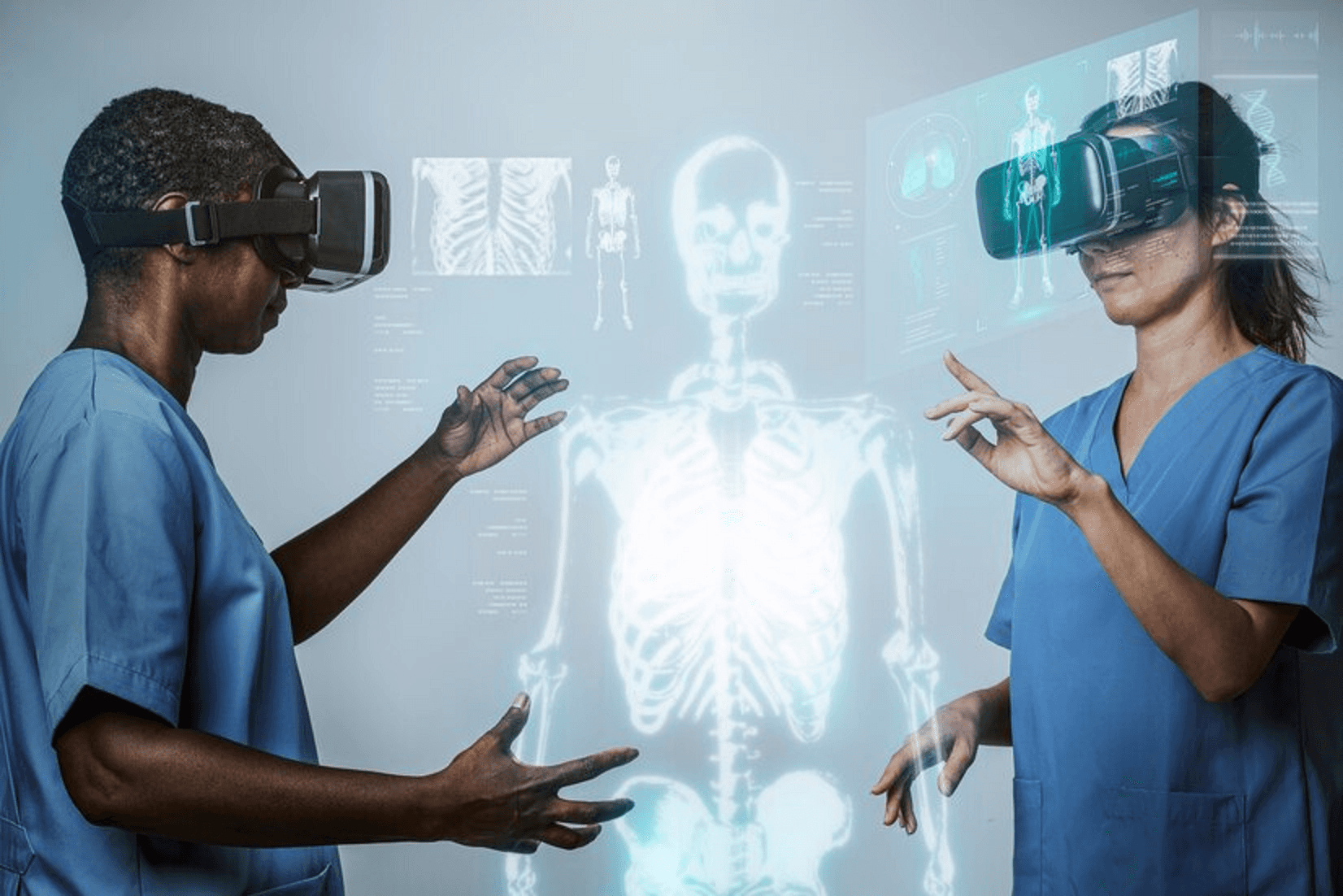
With its transformational potential, artificial intelligence (AI) has emerged as a key player in the healthcare industry, thereby contributing to the transformation of clinical development, medical research, and patient care. The use of AI in healthcare has significantly improved the quality of life via providing accurate and precise diagnosis, treatment plant and rehabilitation processes.
Utilization of AI in Healthcare
Medical teams can use artificial intelligence to automatically generate updates, analysis, and reports, saving them time while also revealing preventative care issues to discuss with patients during appointments.

Analysis of Medical Images :
Artificial intelligence (AI)-driven algorithms are essential for deciphering medical images such as MRIs, CT scans, and X-rays. They facilitate quick and precise anomaly detection, which increases radiologists' productivity and lowers human error.
Drug Development and Discovery:
By evaluating large amounts of biomedical data, finding promising drug candidates, and estimating their efficacy, artificial intelligence (AI) in drug discovery speeds up the process and lowers costs.
Individualised Medical Care:
Personalized medicine uses artificial intelligence (AI) by using machine learning algorithms to evaluate a variety of patient data, including genetics, medical history, and lifestyle factors, in order to customize treatment regimens and forecast individual outcomes.
Chatbots & Virtual Assistants:
AI-powered chatbots and virtual assistants for the healthcare industry provide immediate access to medical information, answer patient questions, and automate administrative work for medical staff. This improves patient engagement and lessens the workload for practitioners.
Early Disease Detection and Predictive Analytics:
With the use of AI algorithms, large datasets may be analyzed to forecast the possibility of an illness, aiding in early identification and intervention that may save lives and lower healthcare costs.
Medical Development:
Artificial Intelligence (AI) in clinical development reduces time and expenses associated with recruitment by quickly identifying qualified applicants. Throughout trials, real-time monitoring guarantees efficacy and safety, hastening the approval of treatments.
💡 Key Takeaway
Use of AI in healthcare has a wide range of applications, including medical image analysis, drug discovery, personalized medicine, predictive analytics, and clinical development.
These technologies have the potential to enhance patient care, improve efficiency, and ultimately save lives. Whether it's in the realm of diagnostics, treatment, or research, AI is proving to be an invaluable tool in modern healthcare.

